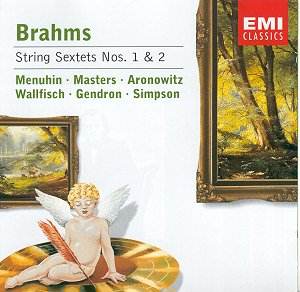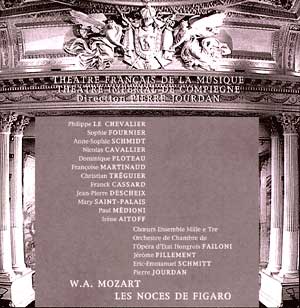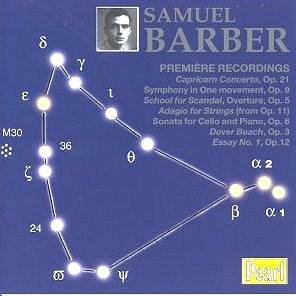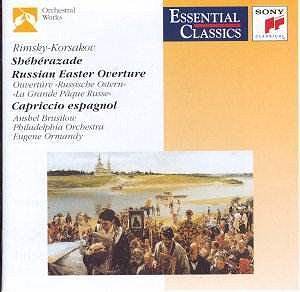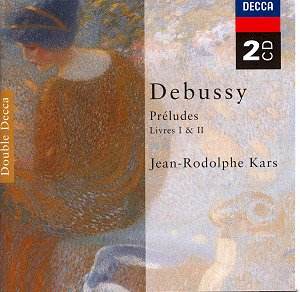 Composer: Claude Debussy
Composer: Claude Debussy
Works: Préludes (Complete), Fantaisie pour piano et orchestre
Performers: Jean-Rodolphe Kars (piano), London Symphony Orchestra/Alexander Gibson
Recording: Recorded in St John’s, Smith Square in December 1970-January 1971 (Préludes), Kingsway Hall, London in May 1969 (Fantaisie), Decca Studio No. 3, West Hampstead in April and July 1968 (Messiaen)
Label: DG
Claude Debussy’s Préludes represent a pinnacle of impressionistic piano music, encapsulating the composer’s innovative spirit and emotional depth. Composed between 1909 and 1913, these pieces reflect his departure from traditional forms, embracing a fluidity and evocativeness that challenge the listener’s perceptions of time and space. Jean-Rodolphe Kars’s interpretation, originally recorded in the early 1970s, offers a fresh perspective on these quintessential works, inviting a reexamination of his artistry in the context of a competitive landscape dominated by contemporaries like Michel Béroff.
Kars’s playing is characterized by a delicate touch and exceptional pedal control, qualities that lend themselves well to the ethereal textures of Debussy’s music. In “La cathédrale engloutie,” for instance, Kars conjures a misty atmosphere, immersing the listener in a sonic haze that evokes the submerged cathedral rising from the depths. His approach to “Brouillards” similarly captures the elusive essence of fog, accentuating the blurred lines of harmony and rhythm that define this piece. However, Kars’s interpretation occasionally veers towards a cautiousness that undermines the exuberance inherent in some selections, notably in “Feux d’artifice,” where a lack of boldness dulls the explosive qualities of Debussy’s fireworks.
Technical prowess is evident throughout Kars’s interpretations. The rapid fingerwork in “Les fées sont d’exquises danseuses” showcases not only his skill but also his ability to maintain clarity amidst complexity. The crisp staccato that defines his portrayal of “Puck” is particularly effective, enlivening the piece with a playful charm that transports the listener. Yet, the interpretation falters in “Minstrels,” where the character is not fully realized; the vivid imagery of commedia dell’arte figures feels muted and under-developed.
The inclusion of Messiaen’s works enriches the recording, establishing a compelling dialogue between the two composers. Kars’s performance of “Regard du silence” reveals an introspective fragility that resonates with Debussy’s subtleties, while “Le Merle bleu” stands out as a masterclass in musical storytelling. Here, Kars deftly navigates the intricate textures, revealing the Debussian influences that permeate Messiaen’s style, particularly in the piece’s middle section, where echoes of Debussy’s harmonic language emerge.
The recorded sound quality is commendable, capturing the nuances of Kars’s piano and the orchestral accompaniment under Alexander Gibson. The balance between soloist and orchestra is well-executed, allowing Kars’s artistry to shine without overshadowing the lush orchestrations of the Fantaisie. This piece, often overlooked in the repertoire, is performed with a lyrical intensity that invites deeper appreciation, particularly in the tender “Largo e molto espressivo” introduction, where Kars’s sensitivity shines through.
Kars’s interpretations hold their ground against both historical giants and contemporary interpreters. While Gieseking’s 1953/4 account of the Préludes remains a benchmark, Kars’s unique character and interpretative choices provide a refreshing alternative. His ability to evoke a sense of wonder and introspection in both Debussy and Messiaen positions this recording as a noteworthy addition to the canon of 20th-century piano music.
This reissue of Kars’s interpretations is a valuable opportunity for collectors and enthusiasts alike. His performances, marked by an alluring blend of delicacy and virtuosity, alongside the insightful coupling with Messiaen’s works, create a compelling narrative that both honors the past and illuminates the connections between these two remarkable composers. The set stands as a strong recommendation for those looking to deepen their understanding of Debussy’s legacy and its profound influence on subsequent generations.
